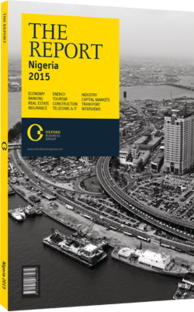Better use of ICT resources in Nigeria's education sector a key part of strategy
As part of a wide-ranging effort to prepare young Nigerians for the digital economy, expanding the use of ICT throughout the education system was a key component of the 10-year Strategic Education Plan (SEP), launched in 2007 by the Federal Ministry of Education. The SEP has laid out a number of technology-related objectives for the sector, including the achievement of 100% computer literacy among secondary and tertiary students, as well as teachers at all levels. Through the use of e-learning platforms, ICT is also being leveraged to improve the facilitation of distance learning, although bandwidth reliability and cost remains a somewhat limiting factor.
Going the Distance
The growth of “virtual learning” is especially pertinent in the Nigerian context. At present, for example, many students are required to travel long distances simply to get to their schools, and there are problems of limited access in classrooms and lecture halls, as well as faculty shortages. The growth in ICT services will also give part-time students greater flexibility as they can access course material online, download lectures at their own convenience, and pick and choose between modules.
The government-supported National Open University of Nigeria (NOUN) is Nigeria’s first distance-learning institution. NOUN admitted its first cohort of around 30,000 students in 2002 and has since expanded to 100,000 registered students, making it the largest university in the country by student population. Courses are taken through a combination of downloadable materials and in-person instruction at one of the university’s 49 study centres, 14 of which are linked by satellite, allowing students to be taught through video-conferencing applications. In addition to this, the country’s first wholly online university is also set to open in the near future.
Founded by entrepreneur Gossy Ukanoke, Beni American University will offer students access to classes at any time of day through a choice of internet-enabled devices. As Nigerian law requires all accredited universities to have a physical campus, land has been purchased for a site to host around 10,000 students at any one time, while total initial enrolment is aimed at 100,000. One 12-week course is expected to cost between $100 and $300.
University Networks
In the decade since the ICT sector was liberalised in 2003, internet usage has expanded significantly: 38% of the population had regular internet access by the end of 2013, compared to just 7% in 2007. This puts Nigeria ahead of the continental average of 21.3% and just about on par with the global average of 39%. However, while internet access is rising throughout the country, most Nigerians are going online on mobile phones where usage is limited by high data rates and slower speeds. According to data from the Global System for Mobile communication Association, mobile data accounts for over half (57.9%) of all web traffic in Nigeria – significantly higher than the 10% global average.
Owing to the speed and price restrictions associated with mobile data, smart devices are better suited to entertainment rather than educational purposes. However, while this may put an impetus on educational facilities to provide broadband access, the country’s domestic fixed-line backbone remains insufficient, while inland fibre and cable networks have not been able to keep pace with the new submarine cables landing onshore.
Bandwidth Issues
Constrained bandwidth has limited the ability of the larger public universities to install a robust intranet that could effectively spread ICT across campuses. According to the not-for-profit Bandwidth Consortium, an institution of higher learning requires around 1000 Mbps of bandwidth per month to run a sufficient campus network. Even so, acquiring this amount of bandwidth transmission remains difficult and costly outside of Lagos. Similarly, Nigeria also faces the further obstacle of an unstable power supply in running a functioning and reliable interconnected campus computer network.
You have reached the limit of premium articles you can view for free.
Choose from the options below to purchase print or digital editions of our Reports. You can also purchase a website subscription giving you unlimited access to all of our Reports online for 12 months.
If you have already purchased this Report or have a website subscription, please login to continue.

